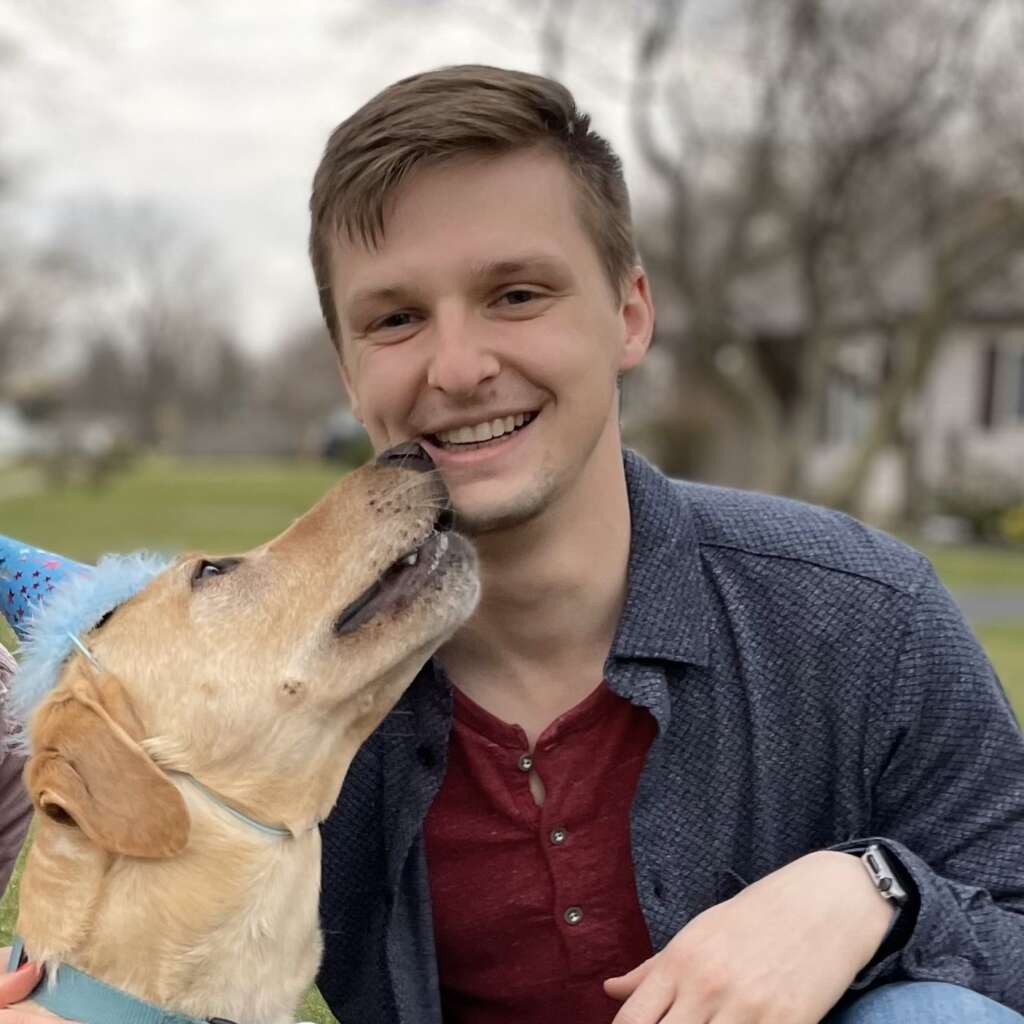May 7, 2025

Simon Weaver recently received his PhD from the Integrated Biomedical Sciences Program, graduating from the lab of Matthew Champion in April 2025. Simon’s work addresses human health problems with analytical proteomics. Specifically, he develops informatics tools to analyze the massive datasets generated from mass spectrometry.
One of his projects involves characterizing the protein secretion systems that mycobacteria (the causative agent of tuberculosis) use to create infection, and what individual proteins are responsible for different steps in these pathways. Understanding these virulence systems will lead to druggable targets and eventually help to address the massive global health burden caused by tuberculosis. Simon has another project devoted to improving ovarian cancer detection, where he has validated a new molecular model of MUC16, an important biomarker, to make early detection more accurate and accessible. He plans to continue this research as a postdoctoral fellow in the Mass Spectrometry and Proteomics Facility at Notre Dame and continue his affiliation with the Lucy Family Institute by participating in the Lucy postdoc community.
What or who inspired your research and its applications to society?
My research focuses on using advanced mass spectrometry to answer questions and address needs related to human health problems such as tuberculosis and ovarian cancer. I’m especially interested in looking for ways to make the diagnosis and treatment of disease more accurate and cheaper, and therefore more accessible and equitable.
One of my mentors, Rebecca Whelan, did an excellent job of continually reminding us how our work directly led to hope for ovarian cancer patients. She helped us connect with the TEAL foundation and talk with ovarian cancer survivors to help us stay motivated. I’m also passionate about making the tools that we use for data analysis more accessible to the research community. I have created shiny applications to help other scientists analyze their mass spectrometry datasets using my methodology, which has been used in very diverse fields, including anthropology and archaeology.
What is the most valuable lesson you’ve learned about collaboration from working with people outside of your field?
I’ve learned that many of the techniques and philosophies on dealing with data are shared among very diverse applications. How we deal with things like missing and compromised data is agnostic to the end application in many cases, and we can share strategies and ideas despite the differences in our end product.
How has the Lucy Family Institute contributed to your development as a research scholar?
I’ve learned a lot about presenting my research to an interdisciplinary audience and ‘selling’ myself as a skilled researcher. I have struggled with feeling imposter syndrome, saying I am a ‘data scientist’ coming from a chemistry background. The Lucy Family Institute has allowed me to improve my confidence in this area by giving me opportunities to talk about my research from a data science perspective.
To learn more about the Lucy Graduate Scholars program, please visit the webpage.